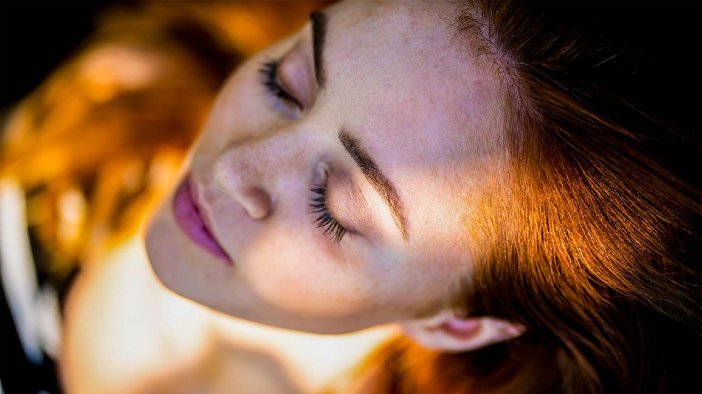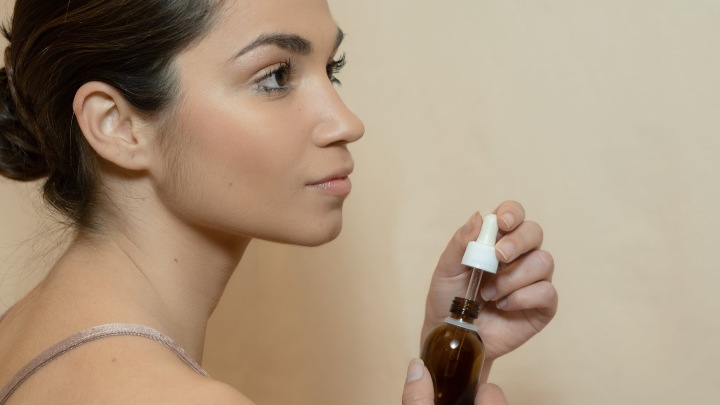One prevalent oil used for both medicinal and beauty or cosmetic purposes will always be castor oil. Castor oil helps treat skin and face issues like acne, psoriasis, wrinkles, and others. However, can castor oil cause acne as a side effect of overuse?
If you think this is not possible, some people would think twice before using anything oil on their face for the same reason – acne.
Oily and acne-prone skin have conditioned themselves to think oils are not meant for their skin because they can flare up rather than reduce the acne-causing reasons.
Well, if you are trying to use castor oil but are worried about this, this is a chance to know once and for all if castor oil is truly bad for acne or not. Read on to find out the truth about castor oil and acne.
What is castor oil?
Castor oil is part of the vegetable oil category used for various reasons, including as a laxative for constipation, medicinal purposes, food, and beauty or cosmetics.
The plant Ricinus communis produces the seeds that make castor oil. The plants grow in humid terrains in Africa, South America, and parts of India. Historically, it can be traced to ancient Egypt, where it was used for beautification and skin cleansing purposes.
The use of castor oil, however, is spreading fast as a natural solution to simple beauty issues. The oil is made through a cold-processing method and comes out with a twinge of yellow. The odorless oil is rich in anti-inflammatory and antioxidants that help improve the appearance of the skin.
It is also used as a carrier oil for essential oils. It helps to reduce the harsh effect of concentrated essential oils on the skin. The oil is versatile and works in improving hair shine, bounce, and health too.
Does castor oil cause acne?
No, it doesn’t.
Castor oil is a heavy oil that contains triglycerides fatty acids, which are also known as ricinoleic acid. The acid helps to improve the absorption of the oil into the skin. Therefore, you can call castor oil non-comedogenic.
Non-comedogenic oils are oils that do not clog the skin pores when applied. They slip easily through the open skin pores without leaving residue that would harm rather than treat the skin conditions.
If you have oily or acne-prone skin, you can rely on castor oil to enhance your skin treatment. You can apply the oil on its own or in products without any hazardous side effects.
Furthermore, it regulates the skin, stopping the excess production of oil. Consequently, it is a great solution for those with acne-infested faces to not only control oil but also reduce acne and spot breakouts on the skin.
Does hydrogenated castor oil cause acne?
No, it does not.
Hydrogenated castor oil is a castor oil type that goes through the same cold-press production process; however, it is mixed with hydrogen to stable and raise its melting point. This is why the oil looks solid at room temperature.
Hydrogenated castor oil works just as liquid castor oil. It contains the same properties; therefore, it does not clog the pores or lead to acne breakouts.
Does castor oil cause acne if used too much?
This is unlikely. While castor oil is non-comedogenic, you can get breakouts if you use it too much.
Every good thing will only last if you use it appropriately. This also includes castor oil.
Furthermore, you can get reactions if you do not cleanse your face before routines. This includes whiteheads or clogged pores. Therefore, always cleanse your skin properly before you start another routine that involves the oil.
Nonetheless, the side effects of overusing castor oil on your face are non-threatening.
Will castor oil cause acne if you are allergic to it?
This is possible. Castor oil allergy, though rare, is possible.
You can experience several from redness, itching, rashes, inflamed skin, or breakouts if you are allergic to castor oil. It means the oil is not suitable for you.
If you are not sure of your reaction to castor oil, patch test. Apply the oil to an inconspicuous part of your skin, and wait for 48 hours. If you do not see any reaction, the oil is safe to use; if you do, discontinue the product.
Does castor oil cause fungal acne?
It depends on your skin sensitivity.
Castor oil does rank low on the comedogenicity scale; however, your skin follicles may react when it comes to fungal acne. The oil contains enough fatty acids to increase the fungal acne on your skin.
Fungal acne or folliculitis is a follicle infection that causes inflamed skin. It usually occurs anywhere you have hair, which is why your hair and scalp follicles are mostly affected.
It is much different from bacterial acne. However, it has the same look and shape. This is why it is often first seen as acne. If you experience inflamed skin and infection and acne treatments are not working, then you have fungal acne.
It shows on areas like the back, neck, chest, arms, and forehead. Consequently, before applying your castor oil, be sure you know it is for bacterial acne, not fungal acne.
Nonetheless, castor oil does help treat fungal infections and reactions on the skin. Therefore, it can work for your skin.
Other benefits of castor oil

It has been established that castor oil, rather than cause acne, helps reduce the appearance of acne on the face because of its properties. The oil also has other benefits for the face and skin. They include:
- Slows aging: The oil contains antioxidants, which fight free radicals. This, thereby, reduces the appearance of wrinkles, age spots, and folds. Your skin stays healthy and youthful with the oil.
- Ease sunburns: The oil also contains anti-inflammatory properties that ease and soothe sunburns or other burns on the skin and face. All you have to do is gently apply the oil to your skin.
- Moisturizes the skin: Moisturizing your skin is important to retain its suppleness. Castor oil helps to improve the moisture balance of your skin. It is versatile and keeps your skin shiny and supple.
- Improves skin complexion: You can also use castor oil to enhance and tone your complexion. The fatty acids the oil contains boost healthy skin cell production. This, in turn, promotes new and rejuvenated skin.
- Cleanses: Castor oil also helps to remove grime and dirt from the skin.
Side effects of using castor oil
Castor oil is a fairly safe oil. Nevertheless, it does pose a minor threat to the skin. If you are using castor oil, you may experience side effects such as irritation, inflammation, swelling, or rashes.
Furthermore, whiteheads are possible if you overuse the oil and it clogs your pores. These reactions can be caused by an allergy or your skin is not compatible with the oil. This is why patch testing is essential before using any product with the oil.
FAQs
Can you use castor oil to remove makeup?
Yes, you can. You can use castor oil to remove makeup from your skin. The oil attracts and sticks to the makeup and dissolves it, cleansing off your skin.
All you have to do is apply the oil on your face, massage and use a cotton pad to wipe off the grease and makeup. Then wash your face with water or apply a cleanser.
Will castor oil make your skin shine?
Yes, it will. It is an oil that glosses your skin, making it shinier and brighter.
Will castor oil make your skin greasy?
It will not. Castor oil is non-greasy. Therefore, it will not make your skin greasy. However, applying too much can have that effect on your skin.
Is castor oil sticky?
Yes, it is. Castor oil is known to be thick and sticky. This is why other carrier oils are mixed with it. Carrier oils like coconut oil and almond oil best complement this oil.
Can you apply castor oil on your face overnight?
You can apply castor oil to your face overnight. The oil would help moisturize your skin if you experienced a dry spell in the day. You will wake up with a supple and hydrated face.
Conclusion
Castor oil is non-comedogenic. It will not cause acne because it slips through the skin with ease. However, the oil will react to your skin if you are allergic or sensitive to it.
Nonetheless, you will get benefits like reduced wrinkles, clear and moisturized skin, and a bright complexion.
If you want to try castor oil as a first-timer, patch test before using it to ensure it does not react to your skin. However, if it is safe for you, use the oil without worrying about side effects to improve your skin goals.
Thanks for reading.
Get more helpful beauty tips here on MBGON.
